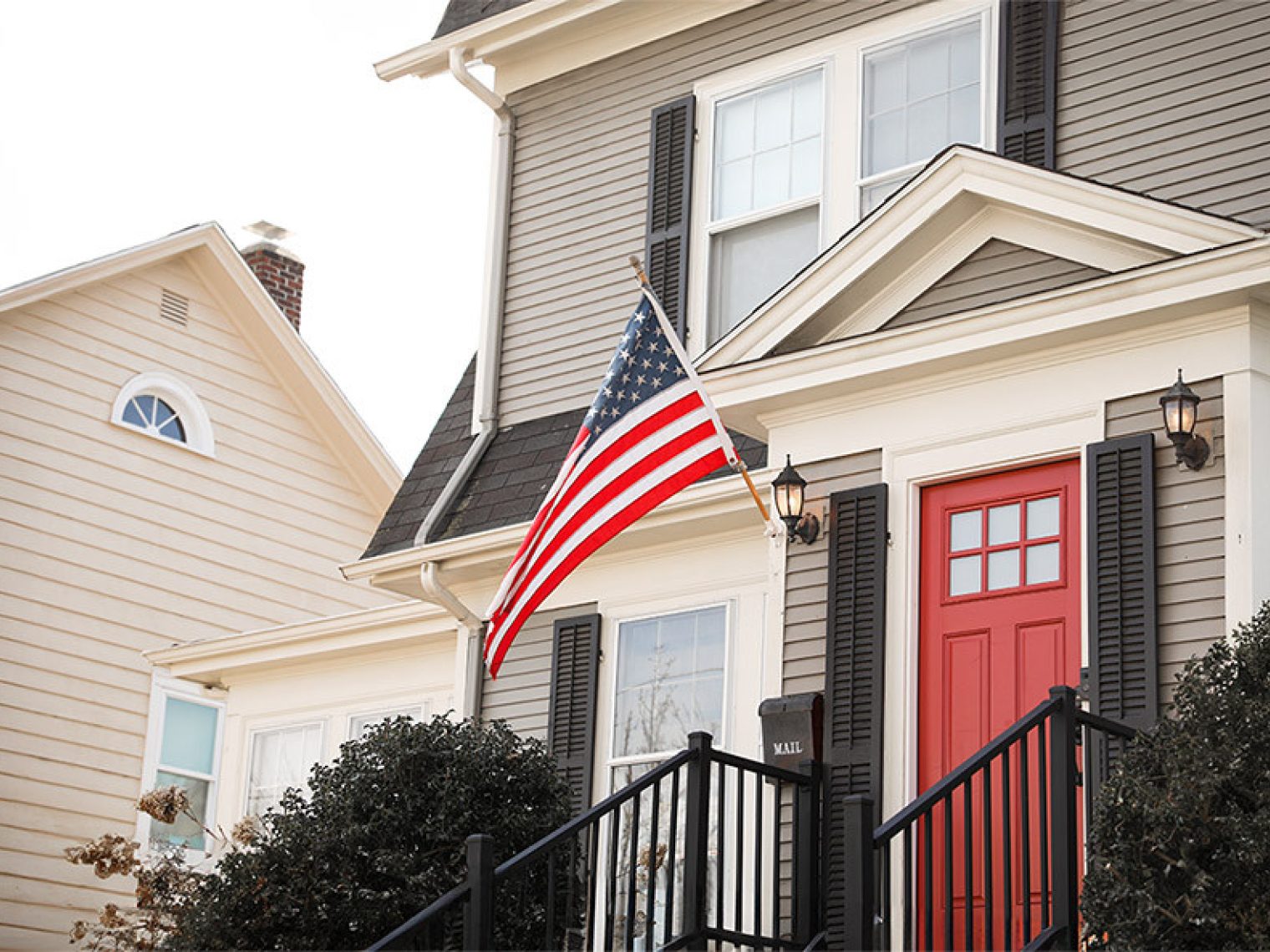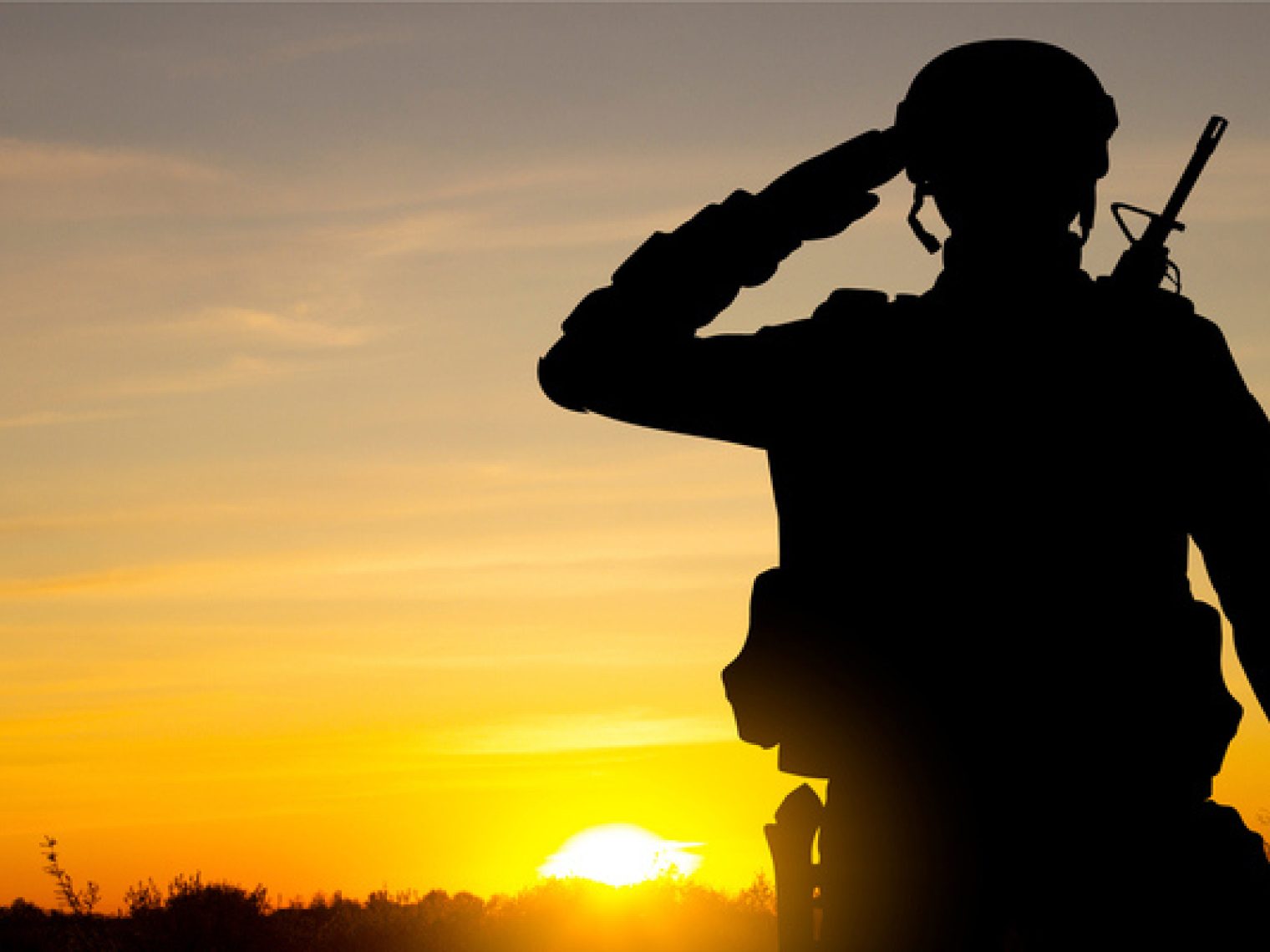"On Guadalcanal, he'd become a hero. But returning to the war in Iwo Jima made him a legend," Diane Hawkins said of her uncle, WWII hero John Basilone, in her documentary.
He was touring the country, encouraging people to buy war bonds, and had high hopes as a movie star. But he decided to go back to war.
Basilone, who served in the Marine Corps, was awarded the Medal of Honor for his courageous actions on Oct. 24 and 25, 1942, at the Battle of Guadalcanal. He was killed in action at the Battle of Iwo Jima, in 1945. He was the only enlisted Marine during World War II to receive both the Medal of Honor and the Navy Cross.
Early Life and Military Service
John Basilone was born on Nov. 4, 1916, in Buffalo, N.Y. to Salvatore Basilone and Dora Bencivenga. He was the sixth of ten children in a family with a rich Italian heritage – his father was born in Naples, Italy and emigrated to the United States in 1903, and his mother was born in Manville, N.J. Her parents had also immigrated from Naples.
Basilone grew up near Raritan, N.J. and attended St. Bernard Parochial School. At 15, he finished middle school, but decided not to continue his education with high school. Instead, he began working as a golf caddy.
Basilone told folks he was looking for adventure in his life. So, in 1934 he enlisted in the Army and shortly thereafter did a tour in the Philippines. Later, as a Marine, he would speak so fondly of his time there that he acquired the nickname "Manila John."
In 1937, Basilone finished his term of enlistment and was discharged from service. He then moved to Reiserstown, Md. where he worked as a truck driver.
Finding that civilian life was not exciting enough for him, Basilone decided, in 1940, to reenlist. This time he joined the Marines, because he thought that this was the best way for him to get back to the Philippines. After his initial training, the Marines sent him to Guantánamo Bay, Cuba.
After attacking Pearl Harbor and driving Allied forces out of the Philippines, British Malaya and the East Indies, the Japanese began to expand eastward into the Western Pacific. On July 6, 1942, Japanese forces occupied the island of Guadalcanal and began to construct an airfield, which the Allies perceived as a threat to Australia.
Despite not being adequately prepared, the United States invaded Guadalcanal in a mission known as Operation Watchtower, where they conducted the first amphibious landings of the war. The first Marines landed on Aug. 7, 1942, and took the Japanese airfield with little resistance. But the Marines had to defend the airfield, Henderson Field, from the Japanese, and the six months thereafter became one of the most crucial periods of battle for the entire war.
Basilone landed on Guadalcanal with Dog Company, 1st Battalion, 7th Marine Regiment, 1st Marine Division.
Medal of Honor Action
On Oct. 23, 1942, the Japanese began the last of their three major land offenses, known as the Battle for Henderson Field, to regain control of the airfield. The U.S. Marine and Army forces dug into their trenches at the Lunga perimeter which protected Henderson Field. Basilone was in charge of two sections of machine guns – 16 men and 4 heavy machine guns.
On Oct. 24, as torrents of tropical rain were pounding Americans and Japanese alike, the Japanese began their assaults on the Lunga perimeter. The attacks continued almost non-stop for two days.
On Oct. 25, a little after midnight, the battle became extremely fierce at Basilone's line. The Japanese attacked with a direct assault at Basilone's gun section and bombarded them with a continuous stream of mortar fire and grenades. It was up to Basilone to direct his men's fire and ensure that they kept functioning. Japanese bodies began to pile up around Basilone's section and the machine gunners had to adjust to fire over the corpses.
One of the machine gun sections became overrun and was put out of action. Basilone grabbed a machine gun and carried it to the breach in the defense and surprised and killed eight Japanese soldiers who were there. Then Basilone set himself to repairing one of the machine guns, the other being destroyed. With very little light, he had to work the repair mostly by the feel of his hands. He fixed and reloaded it just in time for the next enemy wave.
The fighting ceased at about sunrise and the carnage of the failed Japanese attack was unveiled. Basilone's Medal of Honor citation states that his brave and selfless efforts contributed "in large measure to the virtual annihilation of a Japanese regiment" -- that's about 3,000 enemy soldiers.
As one Marine veteran of Guadalcanal put it, Basilone was "the Marine who proved the Japanese weren't invincible."
Selling War Bonds and Iwo Jima
After Basilone received the Medal of Honor, he returned to the United States to a homecoming parade, on Sep. 19, 1943, at his home town. He then started on a U.S. tour to sell war bonds with a number of movie stars and celebrities. He too reached celebrity status and was actually asked to star in some films.
Despite all of the fame, Basilone was itching to get back into the fight. His boys were in harm's way while he was living in luxury stateside. The Marines denied his first request to go to the front, saying that he had a very important mission selling war bonds. They offered him a commission, which Basilone declined, and an instructor's position, which he turned down as well.
Finally, the Marines approved Basilone to go back to fighting in the Pacific. But, first he had to train at Camp Pendelton, Calif. It was there where he met his future wife, Lena Mae Riggi, also a Marine. They were married on July 10, 1944.
Basilone was assigned to Charlie Company, 1st Battalion, 27th Marine Regiment, 5th Marine Division for the invasion of Iwo Jima. On Feb. 19, 1945, American forces landed on the Pacific island, some 750 miles from mainland Japan. 70,000 American Marines and Navy corpsmen aimed to take the island from 20,000 well-entrenched Japanese soldiers.
Only within a few hours of battle, Basilone was killed by small arms fire. He was posthumously awarded the Navy Cross for his valor at Iwo Jima.
John Basilone's actions at Guadalcanal and especially his desire to go back to the fight after being guaranteed safety at home have inspired many Marines.
"He was a Marine who didn't have to come back to Iwo Jima at all," a WWII veteran and Marine said in Hawkins' documentary. "He had the congressional Medal of Honor. He doesn't need anything. He had glory in it's zenith."
Related Posts
-
 2026 VA Disability Calculator With Pay ChartsNew VA disability compensation rates took effect December 1, 2025. See the current VA disability pay chart, and calculate your monthly compensation.
2026 VA Disability Calculator With Pay ChartsNew VA disability compensation rates took effect December 1, 2025. See the current VA disability pay chart, and calculate your monthly compensation. -
 Military Age Restrictions: How Old is Too Old to Serve?In general, the Defense Department restricts enlistment to those 35 and younger. Prior enlisted service members can subtract their previous years of service from their age in order to extend eligibility.
Military Age Restrictions: How Old is Too Old to Serve?In general, the Defense Department restricts enlistment to those 35 and younger. Prior enlisted service members can subtract their previous years of service from their age in order to extend eligibility.
